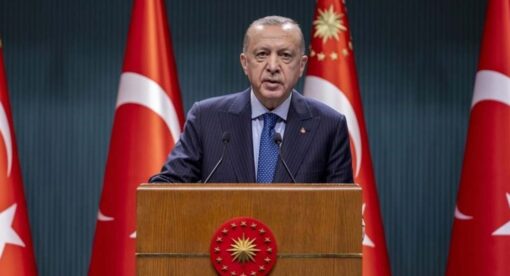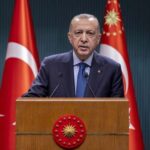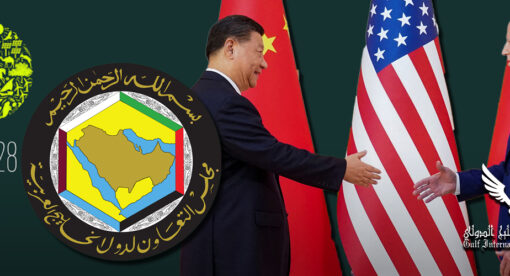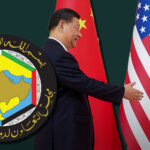Nicola Sturgeon became a giant in U.K. politics—but independence stayed out of reach.
Nicola Sturgeon, Scotland’s most powerful political figure, announced her intention to resign as first minister, the head of the country’s devolved administration. It’s the end of an era in Scotland, where Sturgeon dominated the political scene for nearly a decade. Her party, the left-populist Scottish National Party (SNP), now not only holds power in Scotland’s Parliament but holds almost all of the Scottish seats in the U.K. Parliament in Westminster. Sturgeon had transcended regional leadership to take a starring role on the U.K.-wide political stage—and may have even bigger ambitions for her post-political career.
Yet the main goal of Sturgeon’s time in power has been the secession of Scotland from the rest of the United Kingdom, and in this she has decidedly failed. Taking office as head of the SNP in 2014 after a decisive independence referendum loss, Sturgeon failed to move the ball forward no matter what she tried. Although the party was keen to dub local, regional, and national elections as “de facto referendums,” no second vote was ever called. A recent bid to force the issue ended with defeat in the United Kingdom’s Supreme Court, which found that a new referendum run only under Scotland’s devolved powers would be unconstitutional.
Sturgeon was a supreme communicator, and her public relations team—run out of the first minister’s official residence, Bute House—effectively outmuscled all Scottish opposition. SNP spinners outnumbered the journalists sent by the national broadcaster, the BBC, to cover Scottish politics; and Sturgeon cannily used press conferences during times of crisis, including the COVID-19 pandemic, to undermine the U.K. government’s claims of national unanimity. She would either preempt British announcements, sometimes only an hour or so earlier, or publicly disagree with them—all in an always successful bid to capture headlines.
Read more in Foreign Policy.











